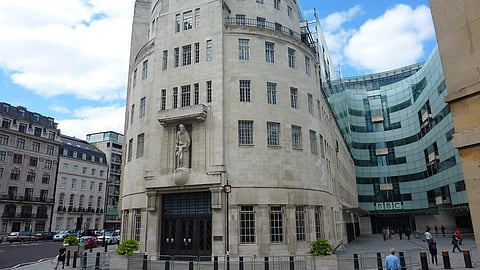

We've broken the time-line of the British Broadcasting Corporation down for you so that you can turn back in time to the first day they started airing their news cast on television. Well before Hitler started the second World War and much before Independent India was a thing.
October 1922
The British Broadcasting Company was created in October 1922 and was initially owned and run by the then leading wireless manufacturers
November 1922
The first daily broadcasts by the BBC started on November 14 and took place from a studio in London. This was then followed by broadcasts from Birmingham and Manchester. In just a few months the transmitter network spread out all over the UK as the wireless caught on as a means of mass communication.
1925
By the end of 1925, the BBC could be listened to throughout the UK.
1926
It was the General Strike in 1926 that first brought the BBC into direct confrontation with the government. The BBC was left to carry on in its own way; as a result, it started to gain a reputation for impartial and independent reporting.
1927
In 1927 the BBC got its first Royal Charter and it then changed from being called the British Broadcasting Company to the British Broadcasting Corporation.
1932
In 1932 the BBC moved into a new purpose-built building, Broadcasting House, in Portland Place, London. It was the world's first radio production centre and the building became a city landmark, often described as the New Tower of London.
1936
On November 2, 1936, the BBC started the world's first television service based in Alexandra Palace, London.
1937-39
As with radio, television developed rapidly when it first started, from 1936 - 1939, and highlights included outside broadcasting such as King George VI's coronation procession on May 12, 1937. Other landmark broadcasts included the first FA Cup final on the April 30, 1938 and the Wimbledon tennis championship in June 1937.
1950 - 1959
A single event in 1953 was to change television forever. The broadcasting of the Queen's coronation in 1953. It was estimated that over 22 million people watched the event. It was after this that the nation became more keen to have television, and sales of TV sets soared.
1970 - 1979
The 1970s were to become known as the 'Golden Age' of television. The BBC's income grew rapidly due to the expansion of colour television for, as more and more people bought television sets, so the licence fee revenue went up.
1980 - 1989
The 1980s became the decade of pressure for the BBC both from added competition and from the government. News reporting changed dramatically in the 1980s as it became the decade of wars and coverage of dangerous events such as Tiananmen Square, Northern Ireland and then the Falklands war.
2000 - 2008
The start of the new millennium was to see the biggest changes ever to the way the BBC provided its services. The digital revolution, across both television and radio, meant more choice, a wider variety of channels and programmes, and channels aimed at specific groups.
2008 to 2019
Further expansion of the BBC's online services took place, and it is now possible to watch live news coverage via the news website, and even BBC television programmes after they've been broadcast, via the downloadable BBC iPlayer. The online services were also expanded to include the facility to access the site via mobile phones.
(Inputs from h2g2.com)
